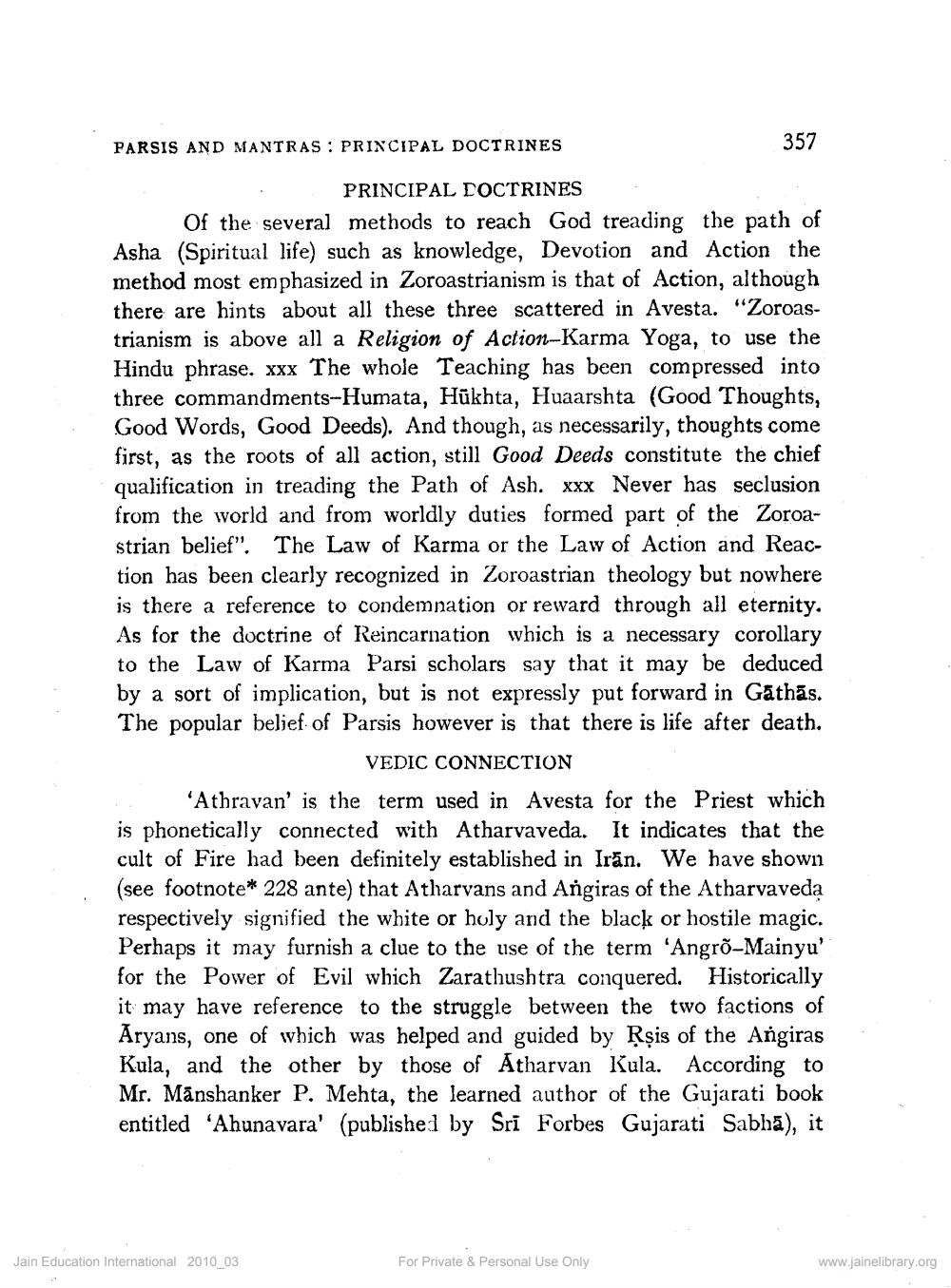________________
PARSIS AND MANTRAS: PRINCIPAL DOCTRINES
357
PRINCIPAL DOCTRINES Of the several methods to reach God treading the path of Asha (Spiritual life) such as knowledge, Devotion and Action the method most emphasized in Zoroastrianism is that of Action, although there are hints about all these three scattered in Avesta. "Zoroastrianism is above all a Religion of Action-Karma Yoga, to use the Hindu phrase. xxx The whole Teaching has been compressed into three commandments-Humata, Hūkhta, Huaarshta (Good Thoughts, Good Words, Good Deeds). And though, as necessarily, thoughts come first, as the roots of all action, still Good Deeds constitute the chief qualification in treading the Path of Ash. Xxx Never has seclusion from the world and from worldly duties formed part of the Zoroastrian belief". The Law of Karma or the Law of Action and Reaction has been clearly recognized in Zoroastrian theology but nowhere is there a reference to condemnation or reward through all eternity. As for the doctrine of Reincarnation which is a necessary corollary to the Law of Karma Parsi scholars say that it may be deduced by a sort of implication, but is not expressly put forward in Gathās. The popular belief of Parsis however is that there is life after death.
VEDIC CONNECTION
'Athravan' is the term used in Avesta for the Priest which is phonetically connected with Atharvaveda. It indicates that the cult of Fire had been definitely established in Irān. We have shown (see footnote* 228 ante that Atharvans and Angiras of the Atharvaveda respectively signified the white or holy and the black or hostile magic. Perhaps it may furnish a clue to the use of the term 'Angrõ-Mainyu' for the Power of Evil which Zarathushtra conquered. Historically it may have reference to the struggle between the two factions of Aryans, one of which was helped and guided by Rșis of the Angiras Kula, and the other by those of Atharvan Kula. According to Mr. Mānshanker P. Mehta, the learned author of the Gujarati book entitled 'Ahunavara' (published by Sri Forbes Gujarati Sabha), it
Jain Education International 2010_03
For Private & Personal Use Only
www.jainelibrary.org




